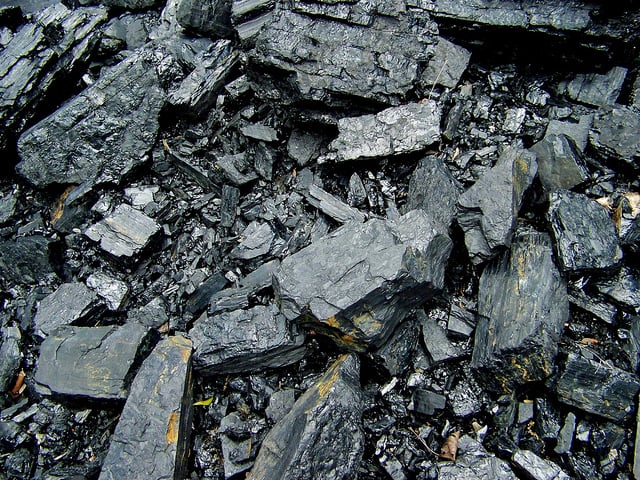The highest consumption rate in today’s world is of fossil fuel. They are a man’s— best friend. Fossil fuel is a term used to describe a collection of energy sources formed by natural processes like anaerobic decomposition during the Carboniferous age million of years ago. During the Carboniferous age, the earth was covered with swamps teeming with plants and organisms. When these plants and organisms died, they sunk to the bottom of these swamps and oceans. In the course of millions of years, the dead plants and animals began decomposing under huge layers of clay, sand and other minerals. The fossil fuels include petroleum, coal and natural gas. In fact, the whole world is dependent on fossil fuels to fulfill their daily energy needs. Though adoption of renewable energy sources has increased sharply in last decade, still it will take some more years to reduce our dependence on fossil fuels drastically.
The consumption of these fossil fuels is going at an high rate which means once we have used up all of them, we need to rely on alternative sources of energy such as solar, wind and hydro power to meet our daily needs. This sounds quite scary, but yes, this is the truth. Though fossil fuels have their own advantages but the damage that they cause to the environment can affect entire ecosystem. This world has no choice but to use the existing fossil fuels until scientists come out with a technology that can produce energy at same rate without affecting the environment.
Different kinds of fossil fuel form depending on a blend of factors including organic matter, temperature, time and pressure conditions in the course of decomposition.
Three main kinds of fossil fuels exist today; oil, natural gas, and coal. Most of the coal we utilize in the modern day was formed approximately 300 million years ago. During that time, a large percentage of the earth consisted of steamy swamps. As the trees and plants died, their remnants were deposited at the bottom of the swamps, resulting in huge layers of plant material. The layers of plants ultimately formed a soggy, thick material known as peat.
Oil was formed from the remains of dead plants and animals that were deposited at the bottom of the ocean. Over the years, the dead plant and animal remains got buried deeper and deeper by accumulated sediment causing heat and pressure to rise. The application of heat and pressure without the presence of oxygen (anaerobic decomposition) led to decomposition of these dead plant and animal matter, leading to the formation of oil. Natural gas was formed in the same way as oil; only the intensity of heat and pressure significantly increased causing oil to decompose further into gaseous form.
Although most governments are increasingly embracing renewable sources of energy like solar, wind and geothermal, fossil fuels are still the world’s dominant energy source due to their high energy density.
Fossil fuels have a wide range of applications including generation of electricity, transport fuels, making products like plastics, cosmetics, and even certain medicines.
Advantages of Fossil Fuels
In the modern day, it’s pretty hard to side with fossil fuels as they are talked against now and then by scientists, environmental activists, including ordinary citizens. Only profiting companies talk good about fossil fuels. In truth, fossil fuels have numerous upsides that hardly come up in debates. That said, here are the advantages to fossil fuels:
- Cheap source of energy
Statistically, fossil fuels are some of the cheapest sources of fuel on the planet. Although the process of extraction and refinement is relatively expensive, the return on investment is pretty remarkable. Today, innovative technologies are available that can extract fossil fuels with high degree of efficiency, substantially reducing the overall cost. In fact in the modern day, extraction of fossil fuels is cheaper than installing wind and solar technologies.
- Safe to transport
Because fossil fuels are safe and stable, they can be transported easily and efficiently over long distances. They can be transported on large trucks or pumped through large pipes below and above the ground. We all know that these transportation methods are not costly. However, the same cannot be said about the nerve-racking nuclear energy. Every stage of its development is risky, making it the most unsafe form of energy to handle or transport.
- Massive economic benefits
It’s a no-brainer that fossil fuels mightily contribute to a country’s prosperity. If you look at the economies of oil and gas producing countries, you will see a common trend; economic prosperity. Government subsidies to oil firms range in billions of dollars, and the contribution to the growth of a country are more than convincing. If you start considering how many countries across the world greatly rely on fossil fuels, the number of industries powered by them and the number of products that would not be available right now without them, you begin to understand just how fossil fuels have permeated our day-to-day life.
- Completely stable
Fossils fuels contain carbon and hydrogen molecules, making them highly stable. The constant state of their molecular composition also makes them easy to store. They don’t form other compounds when stored in cans for longer periods. This is also the reason why transporting them is a lot easier and safer than other kinds of fuel.
- High calorific value
Calorific value is the amount of energy contained in any fuel. Calorific value is ascertained by measuring the amount of heat produced by the total combustion of a given quantity of it. Calorific value is typically expressed in joules per kilogram. All energy produced on earth has a particular calorific value. The higher the value, the more effective the fuel is. Fossil fuels have the highest calorific value of any fuel. This explains why they are still dominant to renewable and other alternative energy sources.
- Abundant
The fact that fossil fuels are able to satisfy the needs of the world population means they are bountiful in supply. Fossil fuels are found in almost every country in the world. This aspect gives governments a piece of mind knowing that they will not deplete in the near future. With technology traveling at breakneck speeds, extraction and refinery procedures have also scaled up, making the availability of fossil fuels even greater.
- Useful by product
Typically, the byproducts of fossil fuels do not stir enthusiasm. What most people do not comprehend is that plastics are handy byproducts of fossil fuels. They might not be good for the environment, but they are useful and cheap. Plastics are also used in medical equipment and computers.
- Reliable
Fossil fuels have been relied upon since the industrial revolution. Other renewable energy sources such as solar and wind rely on the current climatic conditions to produce electricity. If the sun is not shining, production of electricity stops. Also, the velocity of wind affects production of electricity. Fossil fuels guarantee reliable supply of electricity.
- Creates jobs
There is no doubt that fossil fuels have created numerous jobs in the fields of finance, administration, and construction. According to a report by the U.S. Department of Energy, traditional energy sector employs about 6.4 million Americans today. This demonstrates that fossil fuel energy sector is a solid source of employment.
- Easy Set Up
Since they are widely available, the construction of fossil fuel power plant can take anywhere in the world as long as they get large quantities of fossil fuels to feed them. They are easier to extract and process and are capable to produce large amount of energy at a single location.






